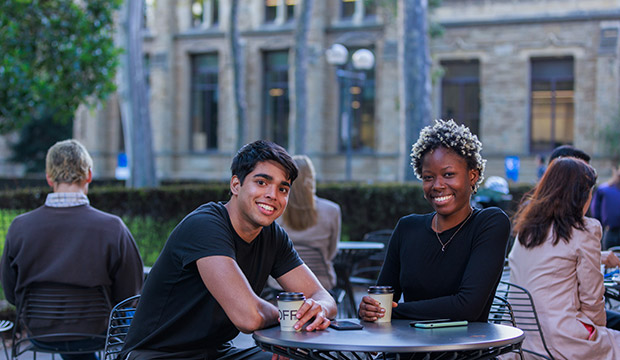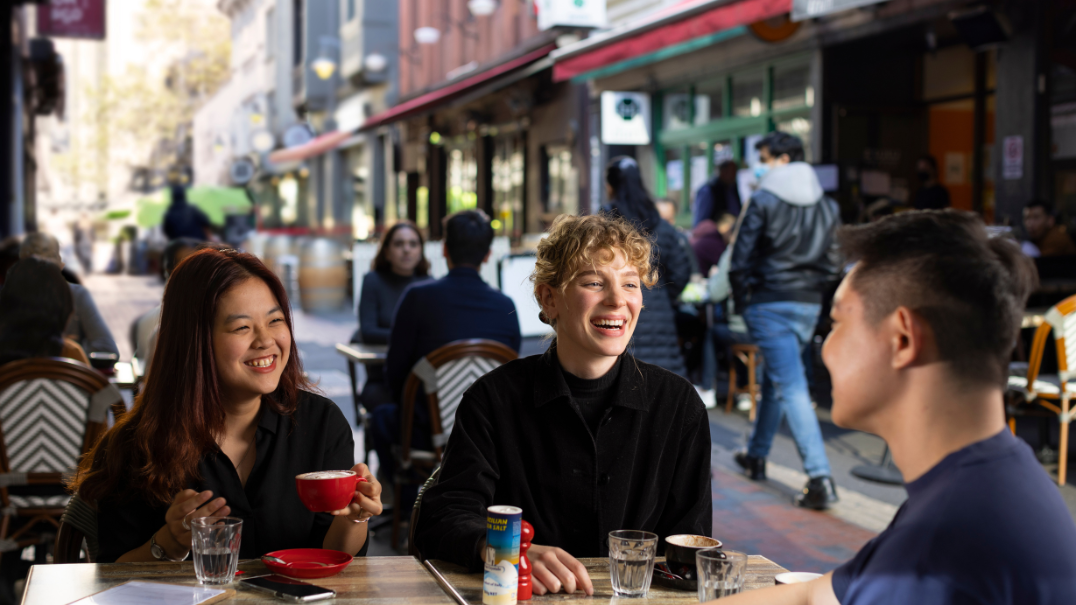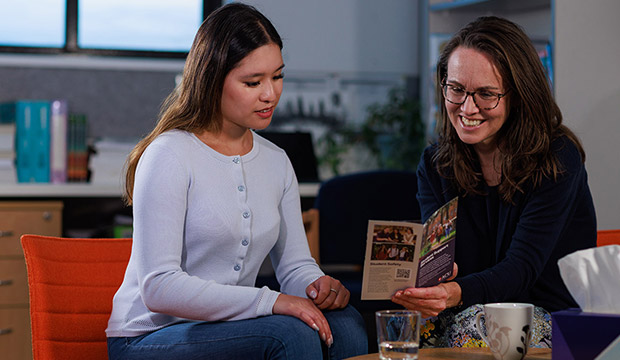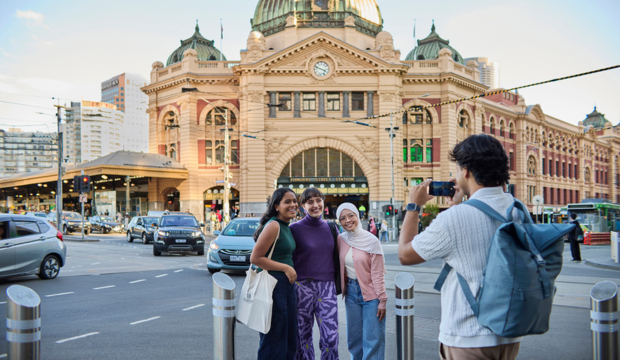When moving to a new country, it’s always a good idea to learn about the medical and emergency services in your new home. While it’s unlikely you’ll need them, it’s important to know where to turn if you are in an urgent situation.
All international students have Overseas Student Health Cover (OSHC) to help meet the costs of medical care in Australia. The Australian Government has created a fact sheet to help students understand how OSHC works and the healthcare it covers.
Medical services
General practitioners (GPs)
A general practitioner (GP) is also known as a family doctor. These physicians have broad knowledge and skill that allow them to diagnose and treat a range of health conditions. A GP is typically the first person you should visit if you are unwell but not experiencing a life-threatening health issue.
You can find a GP near you by searching for your nearest medical clinic.
Medical clinics and hospitals
If you need medical attention, it’s important to go to the right place. In Australia, hospitals treat patients in order of urgency, with those experiencing medical emergencies or severe injuries receiving priority.
Medical emergencies may include:
- Trouble breathing, tightness or pain in the chest
- Serious injuries, burns or trauma
- Loss of consciousness
- Numbness or paralysis
- Severe blood loss
- Extreme pain
If you or someone you’re with is experiencing a medical emergency, visit your nearest hospital’s emergency department (ED) or call Triple Zero (000) immediately to request an ambulance.
If you can’t visit a hospital or practice in person, the Victorian Virtual Emergency Department (VVED) is a great resource to check out. Here, you can seek virtual care in non-life-threatening emergencies. Interpreter services are even available through VVED for patients who prefer to speak in their own language.
Note
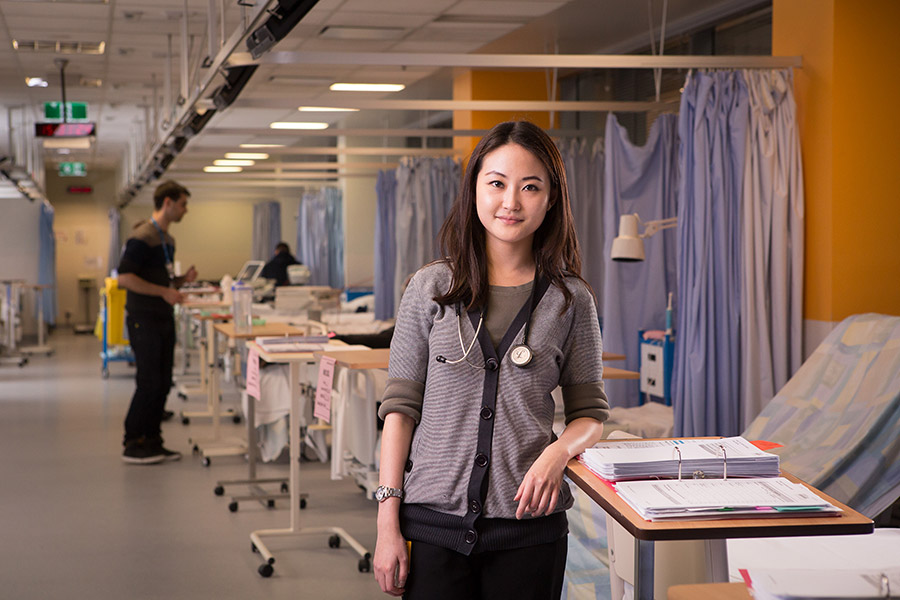
NURSE-ON-CALL
If you’re unsure where to turn or want some advice on your health, reach out to NURSE-ON-CALL at 1300 60 60 42.
This free service offers professional, confidential health advice from a registered nurse from anywhere in Victoria.
You can ask for an interpreter service if you need one. Simply call TIS National at 131 450 and request to be transferred to NURSE-ON-CALL.
Emergency services
Dial Triple Zero (000) when at risk
If you’re experiencing an emergency or your safety is at risk, contact Triple Zero (000) immediately. You can also dial 112 if you are out of phone service or not connected to the network or 106 if you have a speech or hearing impairment.
When you’re connected, tell the operator whether you need the police, the fire brigade or an ambulance. It’s important to stay calm and speak slowly and clearly.
The operator will ask you where you are, so give an exact location or address if you can. They may ask you other questions or provide instructions, so listen carefully and follow their guidelines as needed. You can request a translation service if you need one by telling the operator the name of your language in English.
You may also want to consider downloading emergencyplus, which is a free app developed by Australia’s emergency services with government and industry partners. The app uses the GPS functionality in your smartphone to provide critical location details when you call Triple Zero (000).
Victoria Police
If you are the victim of a crime or your safety is at risk, Victoria Police is here to help.
- Call Triple Zero (000) in an emergency or if a crime is happening now.
- Alternatively, call 131 444 to lodge a non-urgent report.
- To anonymously report a crime, call Crime Stoppers Victoria on 1800 333 000.
Ambulance services
In Victoria, ambulance services are provided by Ambulance Victoria.
Emergency ambulance services are typically covered by Overseas Student Health Cover (OSHC). Check your OSHC policy to verify the level of cover for these services.
Fire services
To request urgent firefighting assistance, call Triple Zero (000) as soon as possible.
If you want to report a fire, but it is not an emergency, you can contact Fire Rescue Victoria on 1300 367 617.
Urgent Care Clinics and Mental Health and Wellbeing Locals.
International students in Victoria can access free healthcare through Urgent Care Clinics and Mental Health and Wellbeing Locals. There are 29 Urgent Care Clinics available, open daily with extended hours, where you can receive care for non-emergency medical issues from specialised doctors and nurses.
The best part? You don’t need your OSHC or a Medicare card for an appointment or referral from a GP (and everything is confidential).
Mental health emergencies
Lifeline’s 24-hour helpline is available anytime if you or someone you know is experiencing a mental health crisis (e.g. thoughts of self-harm or suicide).
Call 131 114 to connect to a trained crisis supporter.
Headspace is Australia's National Youth Mental Health Foundation. Headspace has many ways to support you in your mental health and wellbeing, and to help you navigate life's challenges.
Dental emergencies
Contact the Royal Dental Hospital of Melbourne immediately if you need emergency dental care. If required, the staff there can refer you to a clinic closer to you.
Poisons Information Centre
If you or someone you know has ingested poison, has made a mistake with medication, or has overdosed, call the Poisons Information Centre hotline at 13 11 26.
You can also contact the Centre for help and advice regarding bites or stings from venomous creatures like snakes, spiders and wasps.
Victoria State Emergency Services (SES)
The Victoria State Emergency Service (VICSES) is the control agency for flood, storm, tsunami, earthquake and landslide in Victoria. You can call 132 500 from anywhere in Victoria for such natural emergencies, including in regional areas where such incidents may be more common.
Sexual and Reproductive Health Services
Melbourne Sexual Health Centre
Melbourne Sexual Health Centre provides a range of free sexual health and STI testing, diagnosis, treatment services and Sexual Health Factsheets.
Women’s Sexual and reproductive health hubs
Women's sexual and reproductive health hubs can help you with information and support on all types of contraception, sexual health testing and treatment, and reproductive health. Hub services are usually free or low-cost and available to girls, women and gender diverse people of all ages. You do not need a referral from a GP or health professional to access most services that are provided at women's sexual and reproductive health hubs.
Free pads and tampons
Pads and tampons aren’t a luxury. They are essential to health and wellbeing. People should be able to access them whenever and wherever they need to. That’s why the Victorian Government is making free pads and tampons available across Victoria.
The Study Melbourne Hub provides free pads and tampons in the bathrooms. They will also be available in vending machines at up to 700 public places across Victoria.
1800 My Options
If you're looking for contraception, pregnancy options, abortion and sexual health services – 1800 My Options can help. The service is free, and available 9am-5pm Monday to Friday (closed on public holidays).
Phone: 1800 696 784
Email: info@1800myoptions.org.au
Interpreter: 13 14 50
LGBTIQA+ Health Services
Switchboard provides support services and a range of programs for lesbian, gay, bisexual, transgender and gender diverse, intersex, queer and asexual (LGBTIQA+) people. Free support services include:
- Rainbow Door Phone: 1800 729 367 call, text or email, 10am – 5pm everyday
- Q Life Phone 1800 184 527 3pm – Midnight everyday
Thorne Harbour Sexual health treatment services, screening programs and support groups for LGBTIQ+ community members
Family Violence
Family violence is a crime. Everyone has the right to be safe in their relationships. Family violence is any threatening, coercive, dominating or abusive behaviour that occurs between people in a family, domestic or intimate relationship, or former intimate relationship, that causes the person experiencing the behaviour to feel fear. It includes emotional, psychological, physical, sexual and financial abuse.
Victoria has a range of free services available to help people at risk of, experiencing or escaping from family violence.
Safe Steps Family Violence Response Centre
Provides free telephone and online specialist support service for anyone who is experiencing or afraid of family violence. The service offers 24/7 confidential information, counselling, safety planning, and crisis accommodation. This is the best first point of contact for someone in crisis in Victoria who wants to leave a violent relationship or family situation. The service can act quickly in urgent situations and can provide transport for people without a car or money.
Service hours: 24 hours, 7 days
Tel. 1800 015 188 (free call 24 hours, 7 days) – keep trying if busy
Email: safesteps@safesteps.org.au (available 24 hours, 7 days)
Website: Safe Steps
Chat online: 9 am to 12 midnight (Monday to Friday)
inTouch Multicultural Centre Against Family Violence
Offers free and confidential family violence support services to migrant women living in Victoria. Services can be offered in your first language.
Service hours: 9 am to 4:30 pm (Monday to Friday)
Tel. 1800 755 988 (free call) or (03) 9413 6500
Website: InTouch
Alcohol and Other Drugs (AOD) Treatment and Programs
There is a range of alcohol and other drug (AOD) related services available in Victoria, many of which are free.
DirectLine is Victoria's free and confidential 24-hour counselling phone line, it provides advice and referral to AOD treatment and programs (Tel. 1800 888 236)
Youth Drug and Alcohol Advice Line offers information and advice about treatment and programs specifically for young people. Phone 1800 458 685.
Comprehensive information about drugs and alcohol can be found at the Alcohol and Drug Foundation.
Gambling
Gambling products are designed to keep people gambling and can lead to harm. If you gamble you should expect to lose. Gambling should be budgeted as an expense, just like going out for dinner, and not considered a way to make money. Many organisations offer free support, assistance and counselling for people experiencing harm from gambling.
Gamblers Help provides a 24hr 24-hour telephone counselling service. Phone 1800 858 858
FAQs
What medical and emergency services are covered by OSHC?
The services you’re covered for will depend on your Overseas Student Health Cover (OSHC) policy.
This fact sheet provides a summary of what OSHC is, and how to use it. OSHC helps international students with meeting the costs of medical care in Australia. The fact sheet is put together by the Australian Government, Department of Health, Disability and Ageing.
Can international students get a Medicare card?
Medicare is Australia’s public health system. In general, international students are not eligible for Medicare and will not receive a Medicare card.
However, you may be eligible for Medicare if your home country has a Reciprocal Health Care Agreement (RCHA) with Australia.
How do I see a general practitioner as an international student?
Contacting your OSHC provider is a great way to find a GP, as it can help you locate a nearby practitioner whose services are covered by your insurance.
Alternatively, you can use online platforms like Healthengine or Healthdirect to book appointments with a range of medical professionals in your area, such as doctors, dentists and psychologists.
Page last updated:

